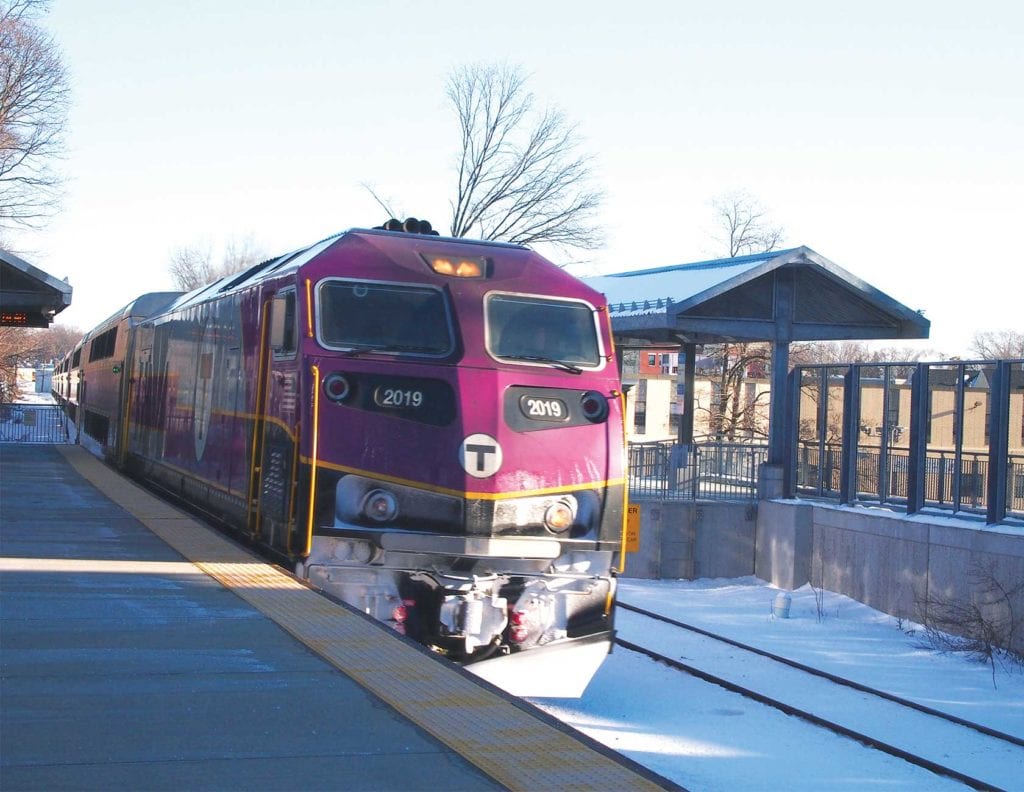
Regional rail has changed drastically over the last year, but its fares have not. Transit Matters, a Boston-based public transit advocacy group, introduced a Regional Rail Transformation Vision in 2019 that creates an opportunity for lower fares.
As reported by the national group TransitCenter, regional rail isn’t a priority for upgrades, but has seen some improvements. TransitMatters Executive Director Jarred Johnson told TransitCenter that there is a longstanding resistance to fare reduction on the MBTA because though the commuter rail generates a small portion of MBTA ridership, it has traditionally served higher-income riders than rapid transit lines.
Since 2019, the schedules have gradually started to prioritize more day trips, redistributing schedules throughout the day to be less heavily skewed toward the morning and evening commute times of 9-5 workers.
“The pandemic has given us the nudge to actually rethink what we’re doing with commuter rail, and move to this all-day model,” Johnson told TransitCenter.
Now, he says it is time for a drastic change.
Though the MBTA has run pilot programs for fare reductions on other lines, they haven’t committed to an overhaul of commuter rail fares.
There are several updates that Transit Matters has proposed that will eventually make the commuter rail more accessible for middle- and low-income people.
Though many of the cars are fairly new, not all the tracks are electrified and some of the speed restrictions are outdated. According to the plan TransitMatters is advancing, several new stations along the Rockport and Worcester lines could increase access, and increased service frequency on the Middleborough/Lakeville Line could enable a crucial extension. Transit Matters asserts in their plan that improvements at JFK and Quincy Center will increase capacity and reliability for trains to the Cape and South Coast.
The more changes they make, the more economically diverse the ridership will be, he said.
“I think that is part of how commuter rail becomes relevant … by increasing its ridership by dramatically reducing its price, and becoming more available for more moderate-income people,” Johnson told the Banner this week.
Boston serves as a cornerstone for regional business, especially for immigrant families who move to surrounding suburbs.
For the commuter rail to reach its full potential, Johnson says, there needs to be a model targeted at getting middle-income workers to jobs and appointments at all times of the day. The state’s mid-sized “gateway cities”, which are home to large working-class populations, are key. According to MassINC, gateway cities face unique economic challenges when their assets (hospitals, infrastructure, universities, major institutions) do not reach their full potential in providing a gateway to the “American Dream.”
“It’s the small kind of post-industrial cities with a lot of low-income folks who can’t afford the highest prices — in some cases, $10 to $12 each way to go into the city,” Johnson said.
Johnson suggested a two-tiered fare system: Everything in sight of Route 128 can be the same price as the subway ($2.40 one way), while everything outside of that can be priced a bit higher depending on location, but this is just a preliminary suggestion.
Since TransitMatters made the Regional Rail proposal, the T has hired an official transformation officer overseeing changes to commuter rail schedules — but changes to the fares are still a relatively new idea, and far down the list of priorities.
Johnson said the commuter rail changes made so far should be permanent.
“I would argue that this should not be a pilot. They should just change it,” Johnson said.






